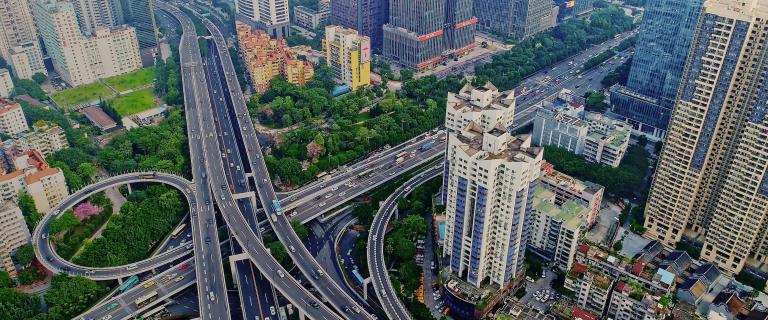
Preparing Urban Leaders for Climate Challenges
The Yale School of the Environment is launching an online certificate program to help urban policymakers and practitioners implement innovative climate solutions.

The Yale School of the Environment is launching an online certificate program to help urban policymakers and practitioners implement innovative climate solutions.
Cities are responsible for about 75% of global greenhouse gas emissions, and in the next 25 years the population of urban areas is expected to increase by 2.5 billion, straining infrastructure, energy systems, and ecosystems. As urban areas grow, they also are contending with the impacts of climate change, including rising sea levels, flooding, and extreme heat. Yet, urbanization may offer opportunities to help solve climate change, as cities are often resource and energy efficient and are sites of innovation and economic growth.
To help prepare environmental and urban professionals for the challenges ahead, the Yale School of the Environment and the Hixon Center for Urban Sustainability are launching a new certificate program in Urban Climate Leadership. Karen Seto, Frederick C. Hixon Professor of Geography and Urbanization Science, and Mark Ashton, senior associate dean of The Forest School and Morris K. Jesup Professor of Silviculture and Forest Ecology, are co-leading the nine-month program.
“Urbanization is one of the megatrends of the 21st century, and cities are at the front lines of climate change,” said Seto, who was the coordinating lead author and co-led the chapters on how cities can mitigate climate change for two U.N. climate reports, the IPCC 5th (2014) and 6th (2022) Assessment Reports. “There is an urgent need to develop leaders who can help cities both mitigate and adapt to climate change.”
The good news is that there is a lot that can be done to make the cities of the future more sustainable, Seto says. While the world is adding a new city of one million every 10 days, the concentration of people and activity in urban areas also present an unparalleled opportunity to increase resource and energy efficiency and reduce future greenhouse gas emissions.
The program is aimed at public, private, and nonprofit professionals—especially those from the Global South—committed to the work of building and adapting cities for a changing climate. Topics addressed in the program reflect climate solutions identified in the most recent U.N. climate report (2022), which outlined the opportunities cities have to increase the efficiency of resources and significantly lower greenhouse gas emissions through smarter design and greener infrastructure in urban areas.
“The program is designed to develop networks of urban professionals from around the world,” Seto said. “I cannot emphasize how important this will be for the participants. They will help develop and be part of a global network of urban climate leaders. At the same time, participants will learn from and interact with some of the most renowned urban climate thought leaders and scholars.”
Urbanization is one of the megatrends of the 21st century, and cities are at the front lines of climate change. There is an urgent need to develop leaders who can help cities both mitigate and adapt to climate change.”
Neha Sami ’04 MEM, an urban regional planner in India who is one of the program’s inaugural faculty, also said exposure to a diverse array of international professionals committed to working on climate solutions will be one of the program’s greatest strengths.
“Our faculty can bring together one set of perspectives, but one of the critical components of learning is going to be peer-to-peer learning, because we're hoping they'll come from all different parts of the world and from different professional and personal trajectories,” said Sami, who is associate dean in the School of Environment and Sustainability Indian Institute for Human Settlements, Kengeri, India. “I'm really excited that because it's online there will be a community of people formed over time. People who've taken this course will be able to reach out to each other and continue learning from one another.”
The Urban Climate Leadership certificate program was funded through the Three Cairns Climate Program for the Global South at YSE, which expands access to advanced education and training for qualified students and professionals committed to working to address climate change.
Applications for the online certificate program opened March 1 and will close April 30. Program information sessions will take place March 8, March 28, and April 19. Scholarships are available.